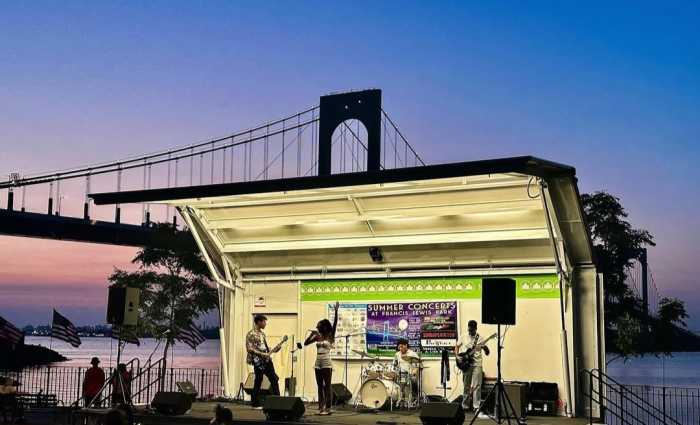By Tom Momberg
The state attorney general’s office has found that required regulations were not followed in the sale of the Bayside Jewish Center to the city early last month.
Meanwhile, planning and the gathering of community input has begun following a request by state Sen. Tony Avella (D-Bayside) asking the AG to look into the sale of the building to the city School Construction Authority, which initially planned to use the lot to construct a new high school. The sale has been met with strong community opposition.
The Bayside Jewish Center, 203-05 32nd Ave., failed to file a petition with the AG regarding its sale proposal, according to Assistant Attorney General Karin Goldman, who responded to Avella’s request.
Filing a petition prior to the sale of a house of worship is required by the state Religious Corporations Law and Nonprofit Corporation Law to give the state the opportunity to review applicable deals in accordance with existing statutes.
“By rushing to sell the Bayside Jewish Center, not only were the nearly unanimous objections to the proposal ignored, but so too were the regulations governing it,” Avella said in a statement. “The attorney general can’t review the deal’s compliance with the law if he was never presented it in the first place. This begs the question: What other procedures were ignored in the attempt to push the project through?”
The director of the Jewish Center could not be reached for comment.
Planning for the new school is already underway.
Councilman Paul Vallone (D-Bayside) held a community engagement meeting last week with representatives from the SCA, the city Department of Education and residents to discuss future plans for the site.
Recognizing that the public was not informed before the purchase of the Jewish Center and that community engagement over school site selection by the SCA and DOE has historically been lacking, Vallone said he and the city agencies would be committed to working with residents to address major concerns and minimize the impact on the residential character of the neighborhood going forward with this site.
Baysiders have been concerned over the potential for increased traffic, as well as the size of the school necessary to relieve the school district’s overcrowded classrooms on just over an acre of land.
“I don’t think anyone supports the SCA’s site selection process, a process that clearly needs to be changed. However, our continuing community engagement forums will ensure that our community’s voices are heard and that we play an integral role in our children’s educational future,” Vallone said.
During the meeting, officials said the size could be minimized and they would consider tailoring a smaller building to specialized programs that have been lacking in northeast Queens.
Vallone said he pushed back the environmental impact study required after the sale was finalized this summer, so school day traffic could be considered and Community Board 11 could have its input.
Avella drafted a bill last session that passed the Senate, but must be reintroduced next session in both houses—a bill that would require the SCA and other school districts in the state to gather public input to be included in the selection process before a sale is finalized.
“There is never a conversation—let’s have a conversation. If there is a need, let’s work together to find appropriate sites to meet the need of not only the DOE, but the students themselves,” Avella said. “I think (Vallone) is actually behind this. Here we are, the community opposes this—not a new high school, but just the location—and here he is, the councilman for the area, behind the scenes supporting it.”
Vallone is however, currently putting together a workshop group to work with the SCA and mitigate community concerns for the project. He is encouraging community stakeholders to take part, and sign up by calling his office at 718-619-8611.
Reach reporter Tom Momberg by e-mail at tmomb

































